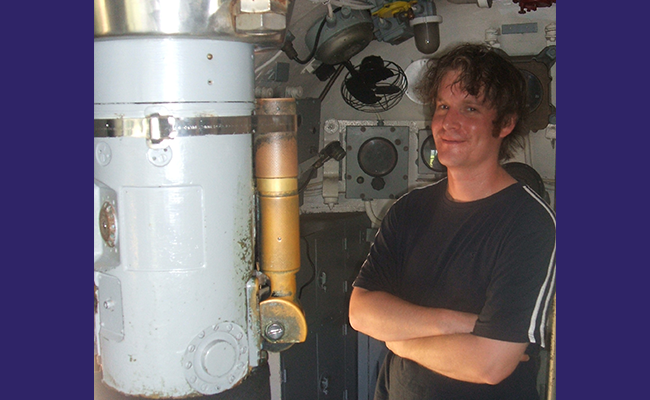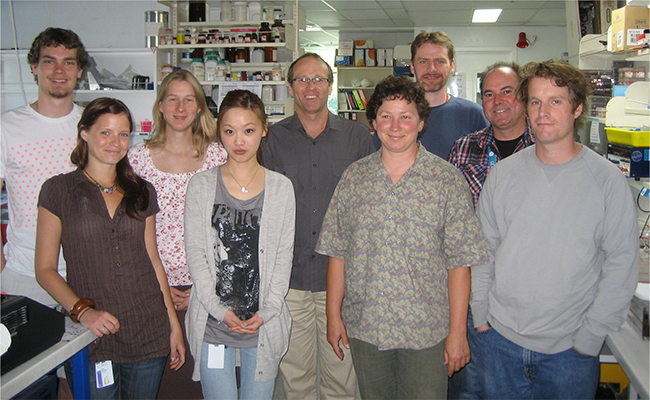Friday 27 January 2023 2:11pm

Dame Sue and Professor Phil Bagshaw say their “much loved” late son, former University of Otago geneticist and aid worker Dr Andrew Bagshaw, was never going to come home from the war in Ukraine until “the job was finished”.
The 47-year-old's death was confirmed this week, after he and British colleague Chris Parry were reported missing in early January.
They had been attempting to rescue an elderly woman from Soledar - an area of intense military action in Eastern Ukraine - when the car they were driving was hit by an artillery shell.
Dr Bagshaw had been working as a volunteer aid worker in Ukraine since last April.
"He set off with a rucksack and travel guide and nothing more," Professor Bagshaw said.
“He took food, water and medicine to isolated areas. We are told hundreds of people were saved by him and his colleagues under the most amazing of circumstances - situations the military will tell you they would never venture into."
Professor Bagshaw and Dame Sue’s links to the University of Otago are well-known and extensive. The former as a well-respected academic, general surgeon and passionate advocate for patient rights, the latter as a dedicated GP and academic in the Department of Paediatrics and a tireless advocate for youth health. The pair helped establish the highly-successful Canterbury Charity Hospital, with plans well-advanced for the construction of Aotearoa New Zealand’s first one-stop-shop hub for youth health and well-being.
Andrew Bagshaw’s links to the University of Otago are less well-known but impressive.
Following his schooling at Christchurch’s Burnside High School, the “deep-thinking young man” headed to the University of Canterbury, completing a Bachelor of Arts in Philosophy and Bachelor of Science, followed by a Master of Arts (Hons 1st class) in biochemistry and genetics.
Current Acting University of Otago Pro Vice-Chancellor, Health Sciences, Professor Neil Gemmell, then working at the University of Canterbury, was Dr Bagshaw's PhD supervisor.
“Quite simply, Andrew was a genuine genius, easily one of the most extraordinary students I have trained,” says Professor Gemmell.
“He had extremely strong analytical skills and the ability to synthesise and link disparate areas of science in a way few other students could. It was a challenge keeping up with his reading and thinking on a topic, which was frequently two or more steps ahead of most others.”

Dr Andrew Bagshaw (far right) and former fellow PhD students with Professor Martin Kennedy (centre, back), Head of the Department of Pathology and Biomedical Science.
Dr Bagshaw completed his PhD in 2008. His project involved developing and using bioinformatic search algorithms to find and compare microsatellites in the genomes of yeast, human and other genomes. Multiple papers were published from that work, driven strongly by Andrew, including some that strongly pointed to a conserved poly-purine/poly-pyrimidine sequence motif associated with recombination hotspots (Bagshaw et al. 2006), a motif that essentially predicted the PRDM9 binding motif that was described in Science a few years later.
His postdoctoral work eventually led him to the University of Otago, Christchurch, in 2008, joining the laboratory of Professor Martin Kennedy, Head of the Department of Pathology and Biomedical Science.
“Andrew was an extraordinary talent, a well-liked and highly respected member of our team” says Professor Kennedy.
“He was a passionate scientist and extremely dedicated, running to the beat of his own drum in his work habits, often staying until late at night to complete tasks he had set himself. He was quiet and thoughtful yet friendly at the same time, incredibly intelligent and clever”.
He undertook a three-year Marsden grant research project, examining the role of genetic variation in human personality and mental health.
Professor Gemmell says one line he wrote about Andrew in a letter of reference seems particularly poignant given his later choice to volunteer in Ukraine.
“I wrote that Andrew will frequently do what he perceives to be the right thing to do. He was a noble soul who I respected greatly.”
Professor Kennedy says Dr Bagshaw’s loss is keenly felt by those at the University of Otago who worked closely with him.
“It is incredibly sad. But his innate generosity of spirit, selflessly dedicating his time and taking such personal risks to help others in dire need is of no surprise to those of us here who knew him."
Both University of Otago Vice Chancellor Professor David Murdoch and Christchurch Dean Professor Suzanne Pitama agree.
“Our hearts and deepest condolences go out to Phil, Sue and their extended whānau for their terrible loss.”
Professor Phil and Dame Sue Bagshaw say they intend for their son's death to not be in vain.
“We are amongst many parents who grieve the deaths of their sons and daughters” says Dame Sue.
“We urge the civilised countries of the world to stop this immoral war and to help the Ukrainians to rid their homeland of an aggressor. Might is not right; freedom is indivisible. The world needs to be strong and stand with Ukraine, giving them the military support, they need now and, help to rebuild their shattered country after the war.”
Dr Andrew Bagshaw is survived by his parents, a brother, two sisters and seven nephews and nieces.
The Bagshaw family wishes any donations be sent to either the Children’s Hospital in Kyiv or to UAnimals.